The real meanings behind some of the strangest titles in video games

Hang on, what?
Nothing short-circuits the rational bits of a brain quite like repetition. Take names like 'Led Zeppelin', 'Kit Kat' and '20th Century Fox', for example. These sorts of incoherent mental amalgams really ought to inspire our curiosity, but through regular use have somehow become utterly ordinary. It's easy to see why. After all, we all know what they are, and after being around for so long the names that they go by are just an appendage of that. Better to cut out the logic-craving middleman than to question the same old phrasing over and over again.
In this, video game names are no exception. Today's big list of stuff looks at 20 such titles, and the real meanings behind their oft-used, if little understood signage. How does one end up in a 'Killzone'? And why exactly are we 'Beyond Good & Evil'? Let the education begin!
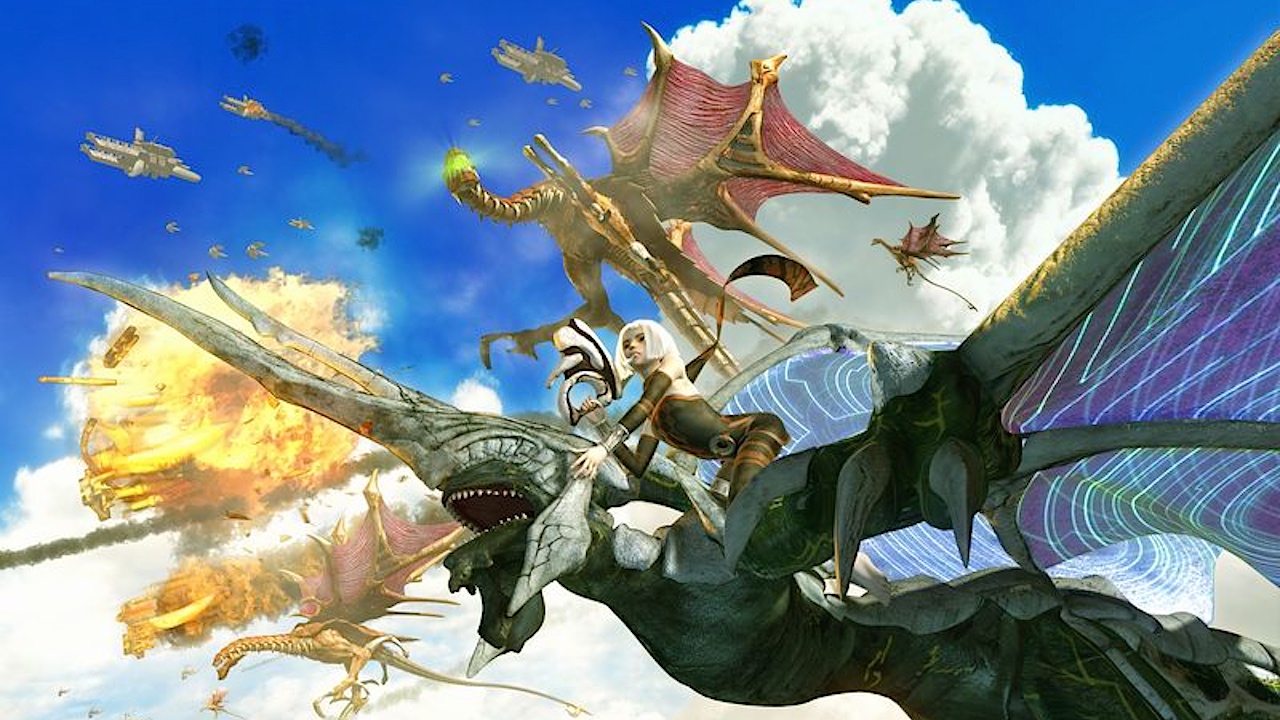
Panzer Dragoon
It appears that Sega's Team Andromeda had quite the infatuation with the German language, opting for the Prussian tongue - over English and Japanese - in order to help sell the concept of gigantic armoured dragons. After all, nothing screams death by heavy metal quite like a panzer tank. Well, either that, or headbanging with a spinal injury A Dragoon, meanwhile, refers to a type of specialist cavalry unit. During peacetime these 18th century soldiers were commonly involved in crowd suppression activities, hence the alternative use of the term 'dragoon', meaning to coerce or constrain.
Given that all Panzer Dragoon titles feature one lone warrior going up against the might of vast and evil empire the reasoning behind these words suddenly becomes a whole lot clearer. The phrase's closeness to 'Panzer Dragon' is probably a complete coincidence
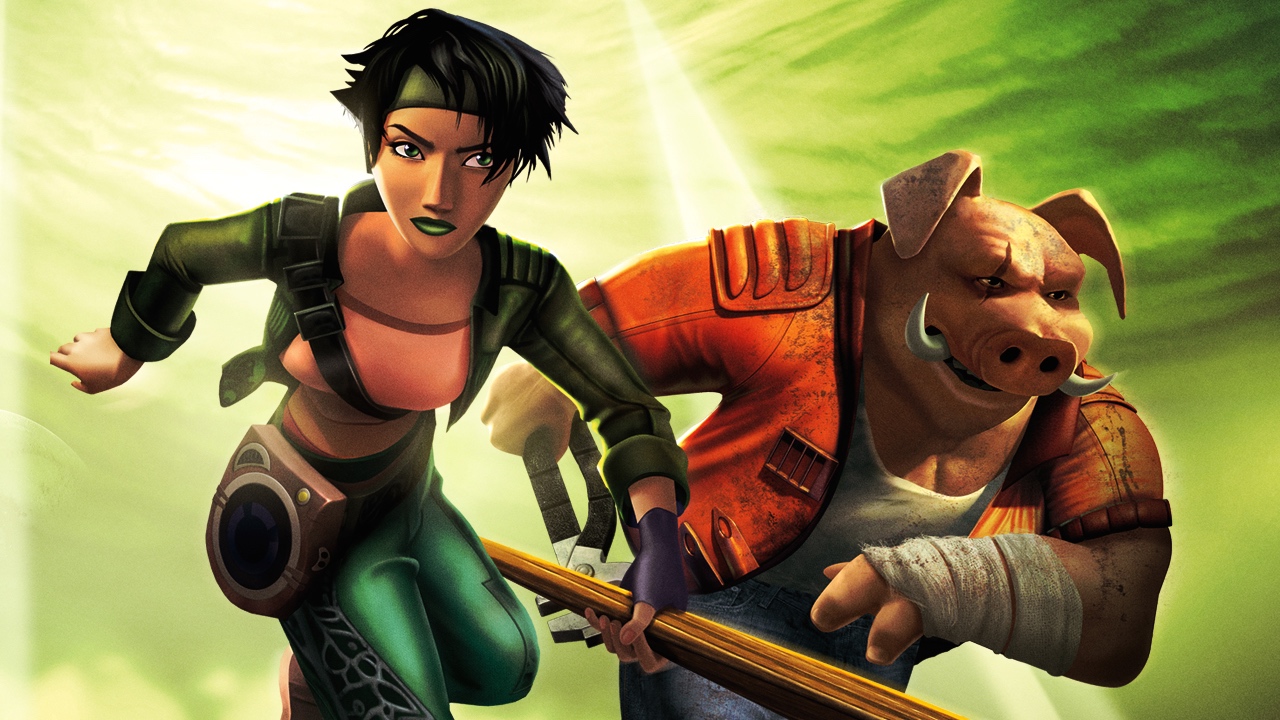
Beyond Good & Evil
Ubisoft's cult hit was originally going to be titled 'Between Good & Evil', a reference to the protagonist's personal and professional struggles in dealing with the game's central conflict. Director Michel Ancel likened the title to the human condition, a constant state of flux between two ethical points. The decision of whether to be good or evil, and the uncertainty in deciding which is which.
One example of misplaced faith occurs early on, when the seemingly virtuous Alpha Section turns out to be working at the behest of the game's main baddies, the Domz. Ubisoft's marketing department later switched out 'Between' for 'Beyond', a decision that Ancel described as better reflecting the game's scope. Despite sharing the same name, BG&E bears no significant connections to the work of Friedrich Nietzsche.
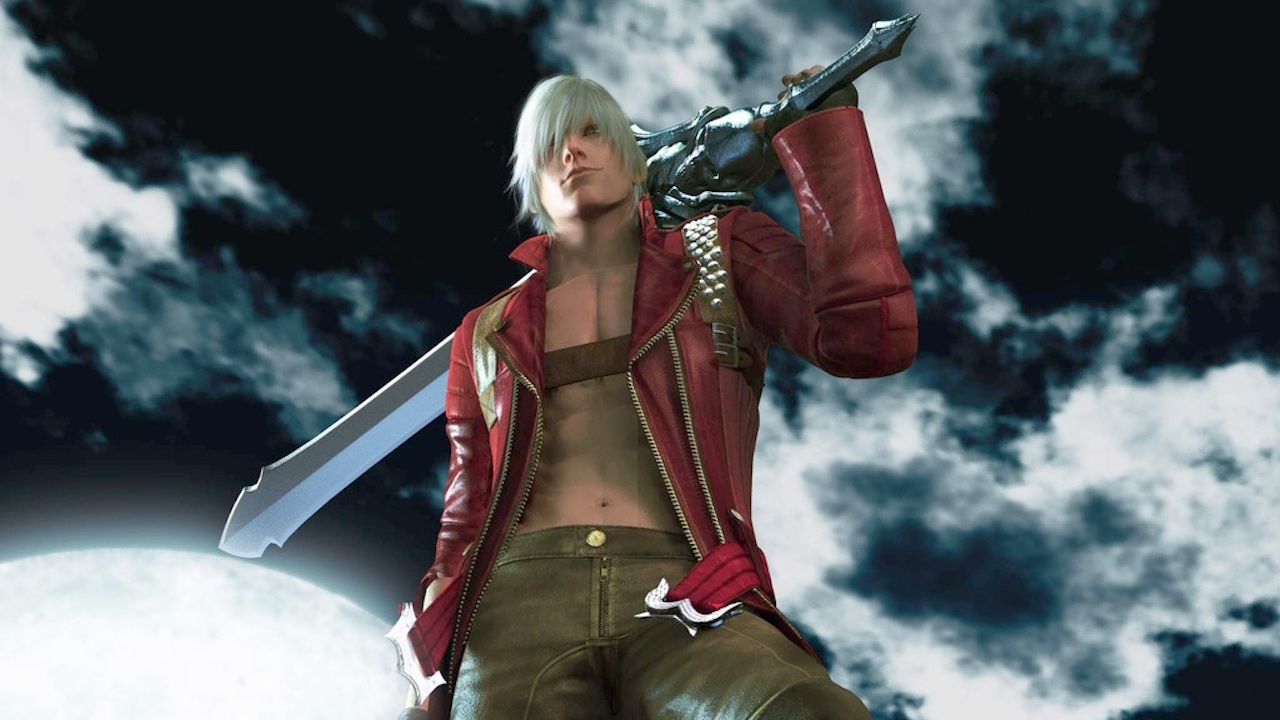
Devil May Cry
Quotes attributed to Devil May Cry director Hideki Kamiya indicate that the game's original title was 'Devil May Care', a phrase that pertains to those who are carefree to the point of recklessness. A bit like series hero Dante, then. Sadly, it seems that an unrelated movie project was also planning to use that title, and so Kamiya opted to employ a slightly different pun instead.
The chosen title - possibly by way of retroactive narrative shoehorning - refers to the fact that the series' titular demons rarely, if ever, betray their emotions. Though Trish did once weep for ol' Dante.
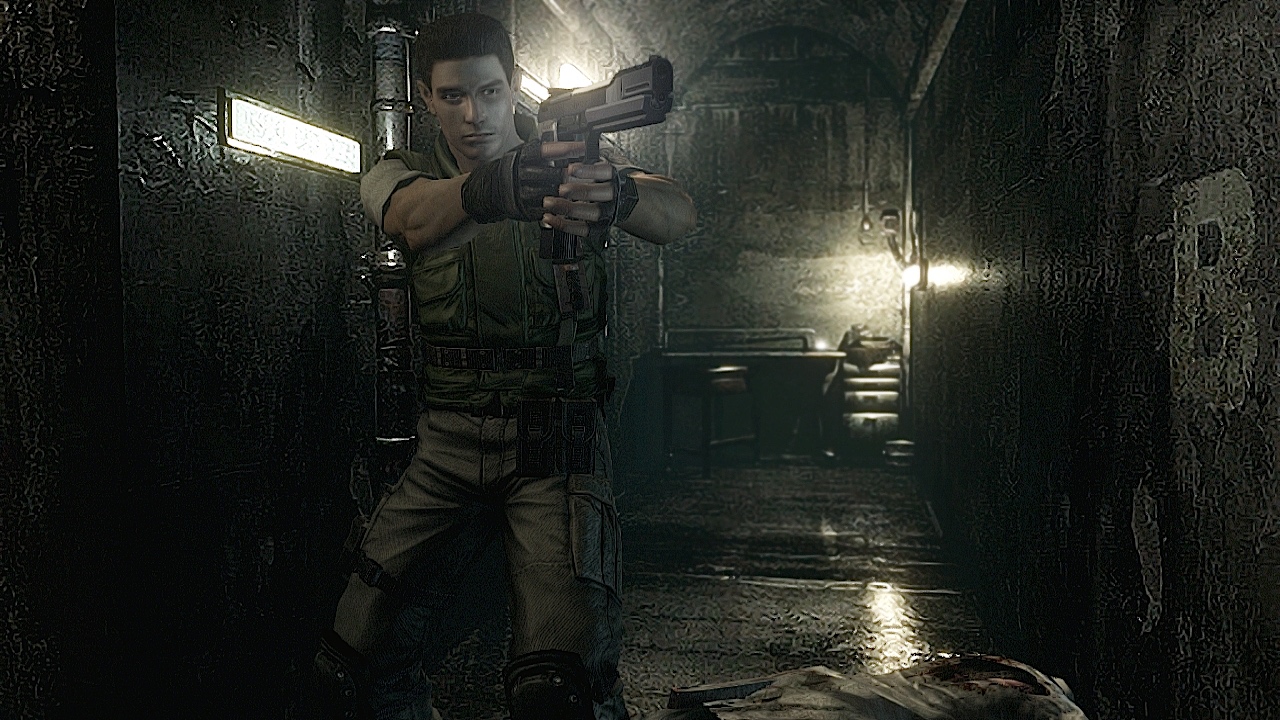
Resident Evil
You might be forgiven for thinking that this strange name was merely another in a long line of obtuse Japanese translations. Not so. As you may well know, Japan already knows the franchise by an English name, that being 'Biohazard', a title that Capcom had originally intended to stick with in the West. Unbeknownst to the House of Hadoken, however, the name had already been copyrighted, wasted on an entirely forgettable DOS title.
Capcom US was soon charged with coming up with a replacement, and held an in-house competition to select the winning candidate. One designer promptly mooted 'Resident Evil', likely a reference to the 1989 NES title Sweet Home, an early horror title that had directly influenced Biohazard director Shinji Mikami. That game featured a plaque outside of the titular house that read 'Welcome to the home of residing evil', a mangled translation alluding to the nightmarish inhabitants 'living' in the mansion.

Canis Canem Edit
If you're the type of parent who routinely becomes hysterical over every vague potential threat facing your child, then the news that those damnable demon-men behind GTA were ready to enter schools would've probably sent you apoplectic. That's just what happened in the UK back in 2006, when parent groups lobbied hard to have Bully - a game all about fighting back against bullies, burnt at the stake. In the end they settled for a name change. That's how the UK ended up playing Canis Canem Edit, a name taken from the Latin phrase meaning 'dog eat dog'.
Still, it's a reasonable enough description of the game's popularity-driven, clique-ridden setting. Hell, it's even the in-game school's motto.
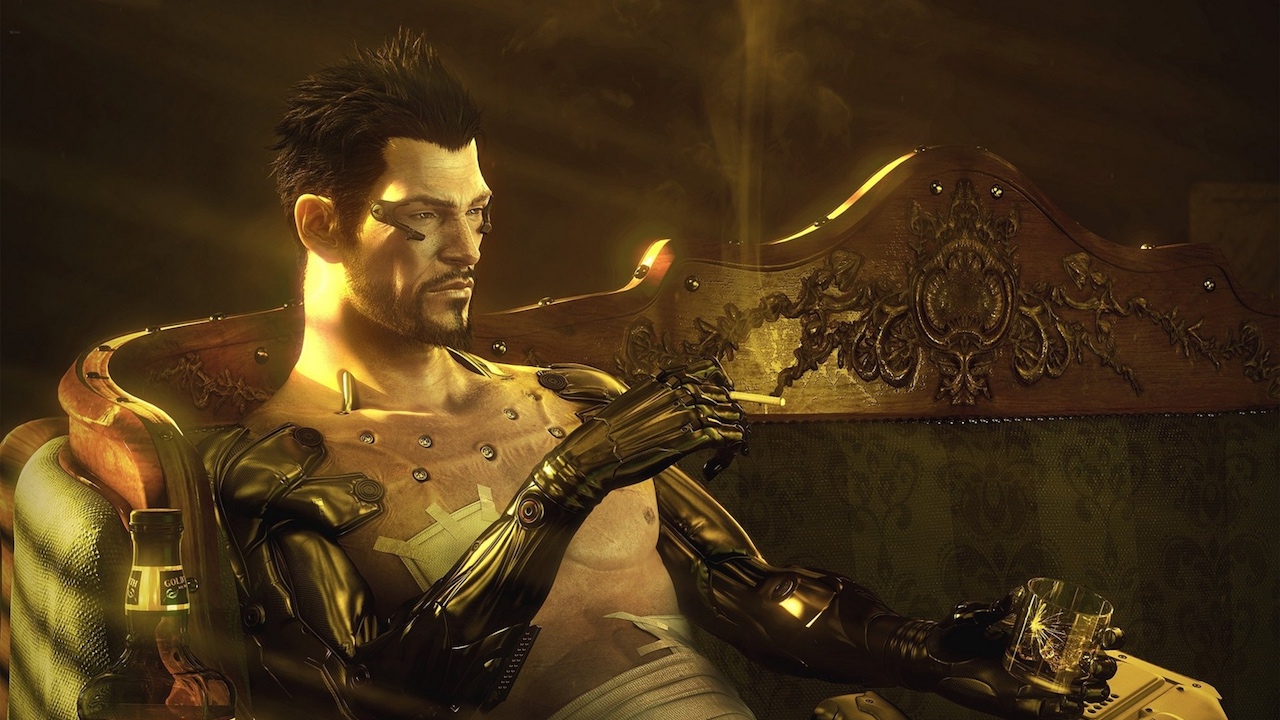
Deus Ex
Roughly speaking, 'Deus Ex' means 'a God comes from' or 'appears out of'. Likewise the more commonly used phrase 'Deus Ex Machina' means 'a god appears out of a machine', or some subtle variation thereof. As a literary term it's used to denote a simplistic and unlikely resolution to a seemingly difficult narrative issue. God is a used as a sort of metaphor for an all-powerful, blunt-force plot device, vis vis something that only a god-like intelligence could correct to everyone's satisfaction. See it as the original version of 'A wizard did it'
Deus Ex the game takes place in a society made up of increasingly powerful machine men, cyborgs and the associated tech corporations who often attempt to act with god-like impunity. Original developer Ion Storm appears to have taken a more literal approach to the phrase, alluding to the complete wording while ignoring the connotations of its literary usage.
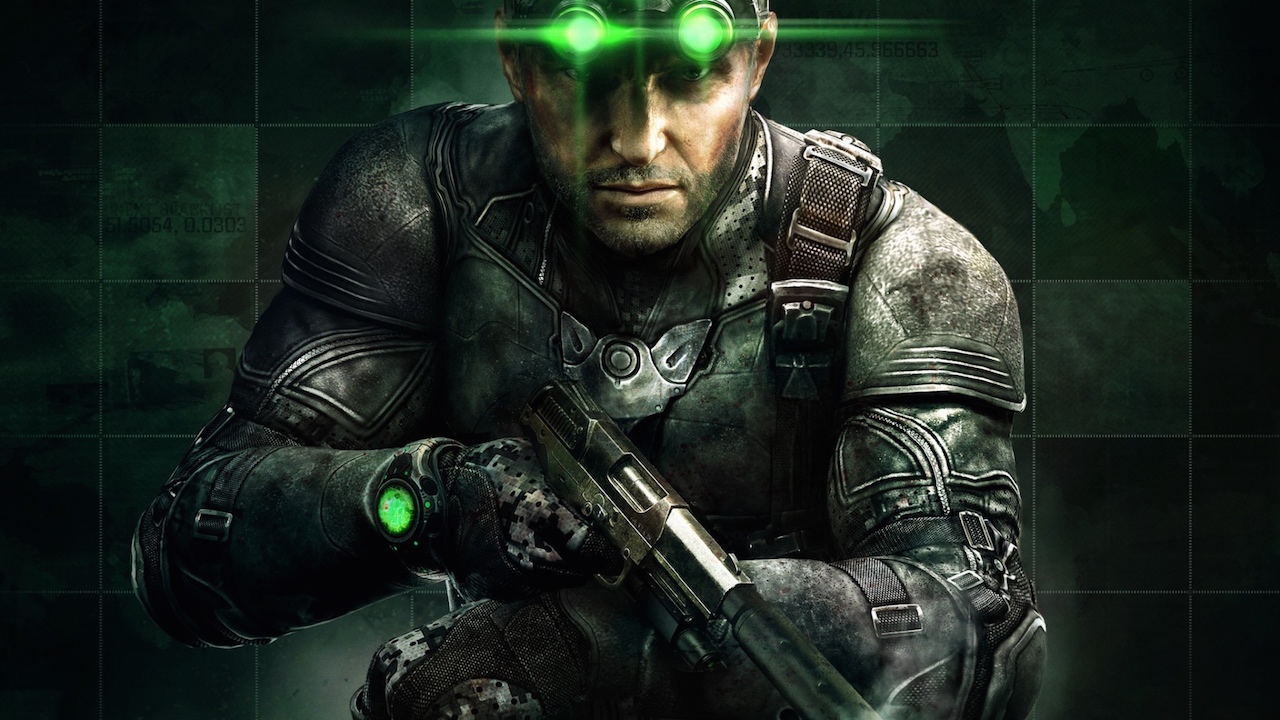
Splinter Cell
A small offshoot group that breaks away from a larger organisation, usually to pursue a more immediate or visceral course of action (hence the use of the word 'splinter', as opposed to 'branch' or 'tributary', indicating a fracture of the greater organisation body). 'Cell', in this instance, refers to a highly resistant structure, or group of people out to achieve some sort of political action - typically through covert means - and is likely related to the Latin word 'celare', meaning to hide or conceal.
Interestingly, the first game in the series took the title to indicate an opponent, ala a 'terrorist cell', while later games embrace the idea of the protagonists' side as being the titular 'Splinter Cell'. Gee, it isn't like the boys in US covert ops to confuse friend with foe, amiright? *loud muffling sounds*.
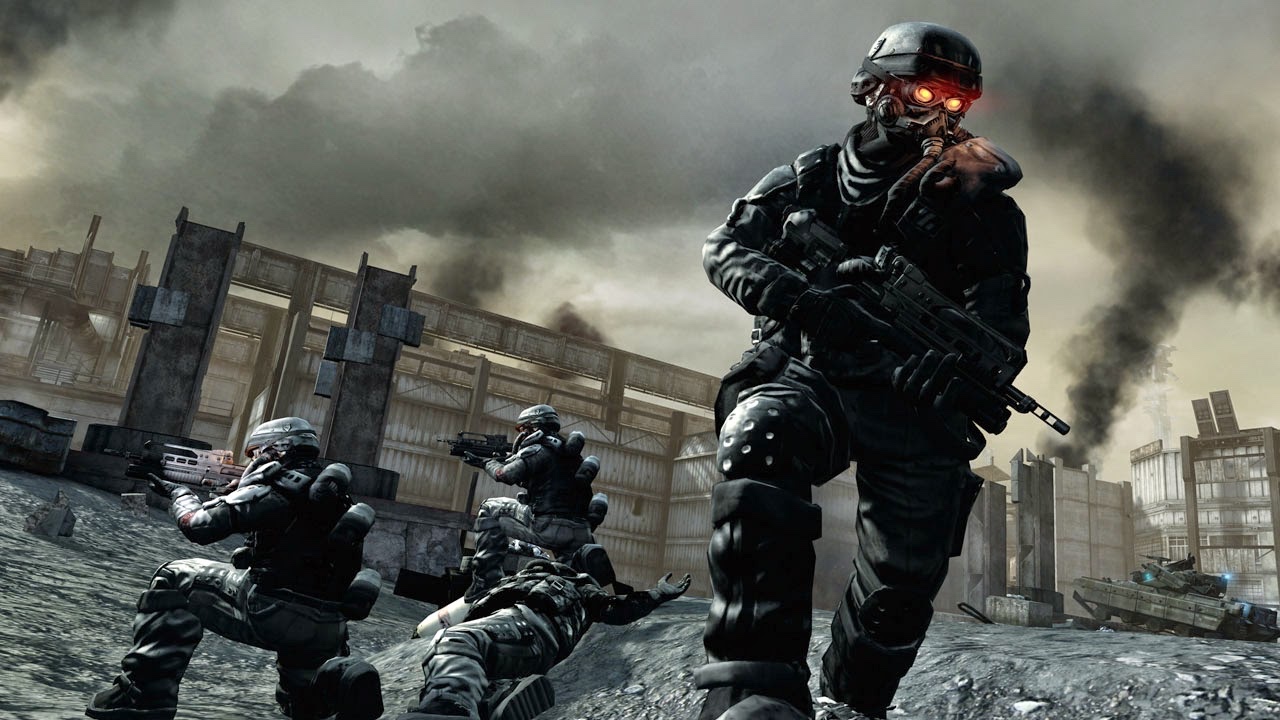
Killzone
'Kill Zone' or 'Killing Zone' is a military term used to denote the area of a battlefield strategically chosen to create the highest concentration of enemy casualties. Defences are then structured around this pocket, though not always fully surrounding it.
Kill zones can be clearly marked, a la the Normandy beachfront, or remain physically indistinct from the surrounding area, as is the case with an ambush scenario. Killzone the video game series features many such traps, with the player being involved both as an attacker and defender.
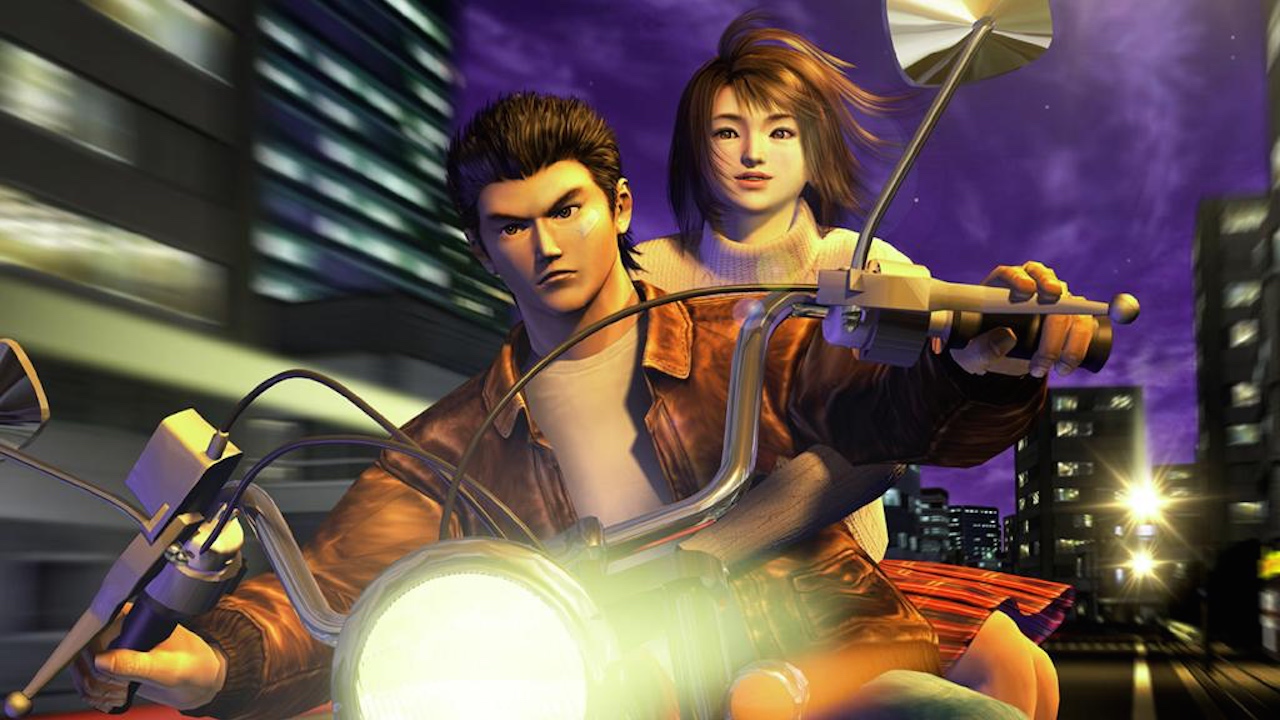
Shenmue
The name Shenmue refers to a gigantic blossom tree that plays an important, if somewhat vague role in the game's overarching plotline.
The tree appears in the village of Bailu and is first visited during the latter part of Shenmue 2. It remains a key component of the series' central, as-yet unfulfilled prophecy.
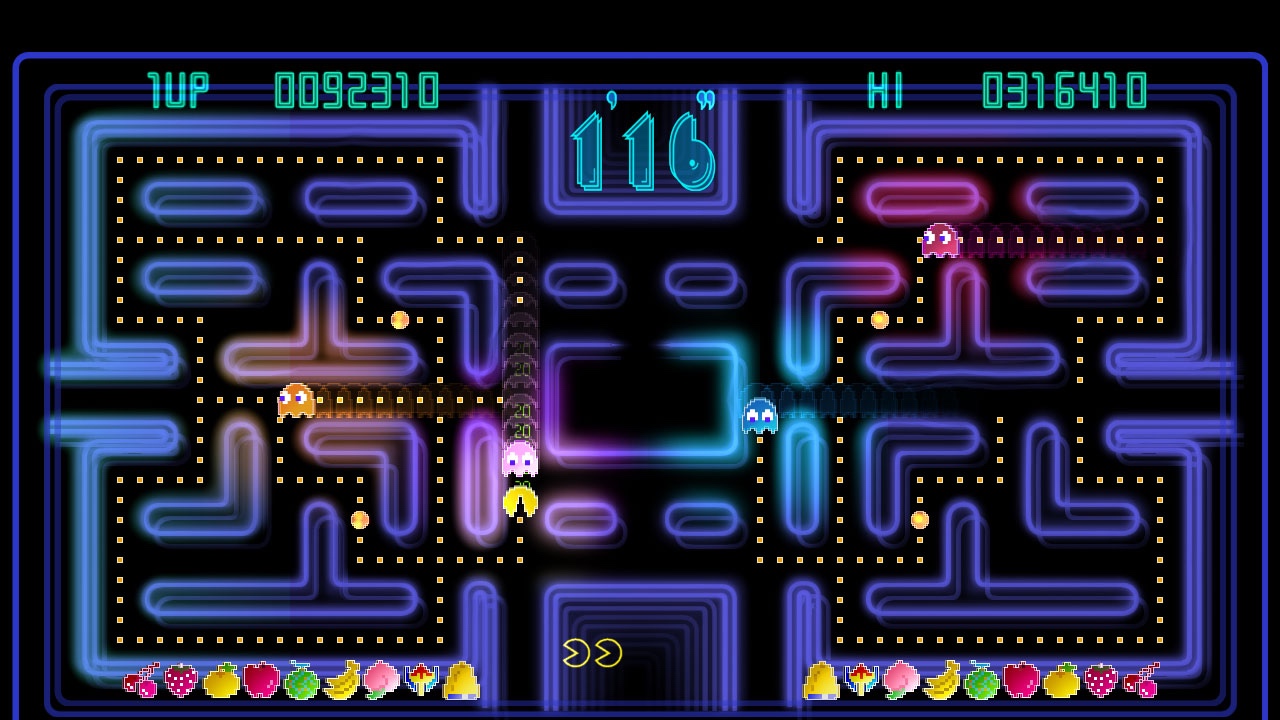
Pac-Man
As anyone whos seen Scott Pilgrim vs. The World can attest, Pac-Man was originally named 'Puck-Man', a reference to the titular's character's hockey puck-like design. Further influences include the shape of a slice-less pizza, the Japanese word 'paku' - an onomatopoeic phrase describing the sound of eating - and a deformation of the Japanese character for mouth, 'kuchi'.
Western publisher Midway later decided to change that name due to the belief that vandals would seek to scratch out part of the 'P', thereby creating 'Fuc-Man' cabinets. Keep it classy kids.

Final Fantasy
Video gaming gallows humour at its finest, Final Fantasy was reportedly so named because of the depressing financial situation in which it was developed. Fearing bankruptcy, Squaresoft knew it had but one last roll of the dice. Thankfully, that gamble paid off, with the game's success helping to stabilise the company, and thereby ensuring the continuance of silly haircuts for ages to come. At least, that's how composer Nobuo Uematsu remembers it. Then-director Hironobu Sakaguchi has downplayed any such financial motivations, and insists that potential changes in his own personal future - i.e his decision to return to university should the game fail - was reason enough to name the title 'Final Fantasy'.

Ace Combat
It seems as though those sneaky buggers at Namco slipped this one right past most folks. See that Ace up there in the title? It actually holds two meanings (I know, I know - you just thought it was another one of those crazily enthusiastic Japanese titles). Now aside from meaning just 'awesome', or 'really good pilot', Ace also specifically refers to any airborne combatant to have shot down 5 or more enemies.
Famous aces include Germany's Red Baron and the all-time most-killingest Erich Hartmann, while other nations boast the likes of Ivan Kozhedub, Ren Fonck and Edward Mannock.
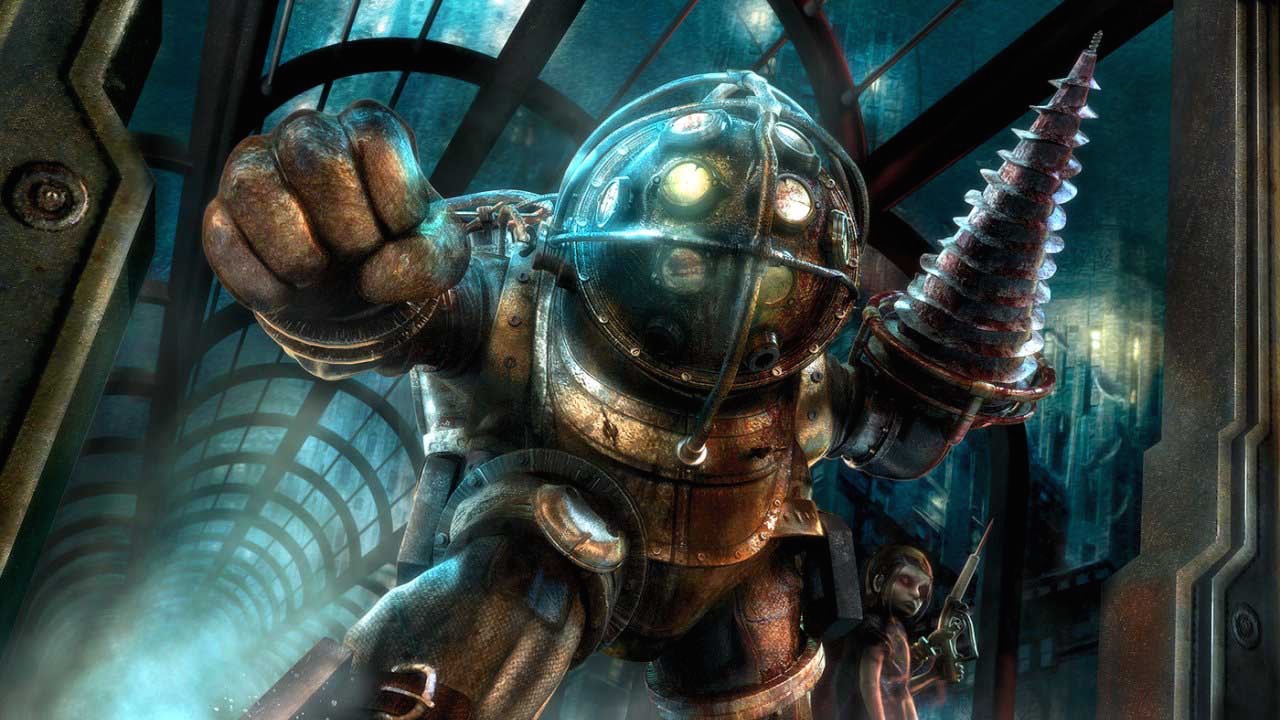
BioShock
Original pitch documents released by Irrational Games show that BioShock was originally envisaged as a sort of ode to The Island of Dr. Moreau, a novel about a cultish group of scientists creating human/animal hybrids. Players would explore the results of these mad experiments, battling nightmarish creatures and uncovering various intrigues. At some point the player would also become able to blend with the animals, acquiring the abilities of whichever creature's DNA was chosen.
Such mergers would involve a total biological shock to the system, hence the name. The choice of 'shock' is also intended as a homage to the studio's previous title, System Shock 2. Of course, the idea of tainted biology still exists within the final product, though without the more explicit animalistic overtones.
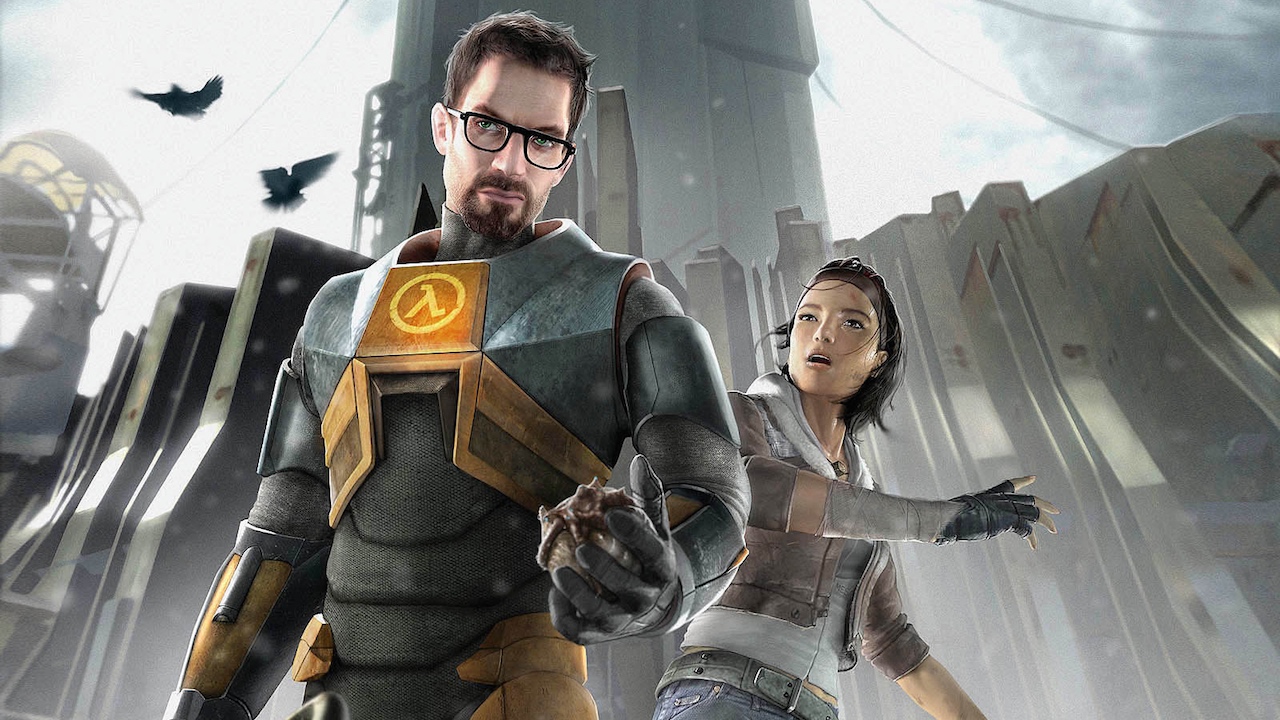
Half-Life
A scientific term referring to the amount of time taken for a quantity (usually a radioactive isotope) to diminish to half of its original 'size'. While Half-life can refer to any value that falls by half, the term is usually used to measure an 'exponential decay', or a decrease that occurs in steady proportional drops, i.e. 8 to 4, 4 to 2, 2 to 1, 1 to 0.5 etc.
When viewed in a scientific formula this rate of decay is referenced by the Lambda symbol ()- a Greek letter that also adorns Gordon Freeman's HEV suit. According to developer Gabe Newell, the name was chosen for it's general evocation of the game's themes, i.e. science-based calamity and an overall state of decay.
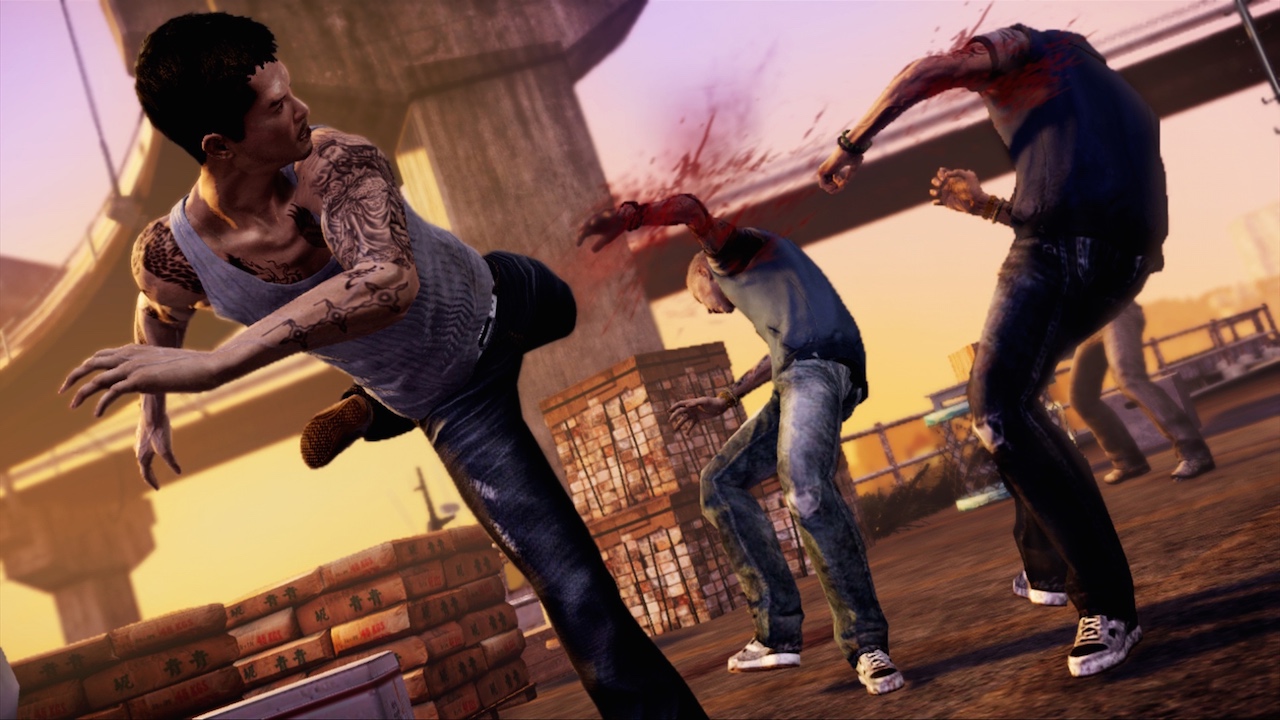
Sleeping Dogs
From the phrase to 'let sleeping dogs lie', meaning 'to put negative events out of mind, refusing to act upon them in order to prevent a worsening of the present situation'. Also encapsulated in the phrase to 'leave well enough alone'.
It's unclear how this specifically relates to the adventures of Wei Shen, though fans have speculated that by returning to his gangland roots - to seek justice for his sister Mimi - Wei ignores this lesson, thereby placing himself, and his friends in danger. This theory is given further credence by the fact that the architect of Mimi's downfall is referred to by the nickname 'DogEyes'.

Mass Effect
This weighty name is briefly explained during the intro sequence of the first game, and refers to a type of energy field that allows starships to travel beyond the speed of light. By applying a strong electric current to the fictional 'Element Zero', users are able to both create and manipulate these fields, effectively raising or lowering the mass of any object currently occupying that spot.
High mass can help to create artificial gravity effects, while low mass modifications allow ships to bypass one of the most party-pooping laws in all the universe - i.e. the faster you move at the speed of light, the greater your relative mass becomes, requiring ever more fuel in order to continue. In layman's terms, it's a little like running a marathon, except the race is sponsored by KFC and all the rest stop bottles are filled with gravy. The further you go, the more energy you require, and the fatter and fatter you get. 'Mass Effect' is the equivalent of nabbing that unguarded golf cart at the starter's line and breezing straight on through to the finish.

Perfect Dark
Far from being just another cool sounding, if entirely vague, name, Perfect Dark does actually operate on a kind of internal logic. Simply put, the game's protagonist - Joanna Dark - is so damn good at what she does that her superiors often refer to her by the nickname of 'perfect Dark'.
Yes, the developers probably did come up with the game's title first, though as hackneyed explanations go, Ms. Dark's level of excellence provides a fairly decent cop out.
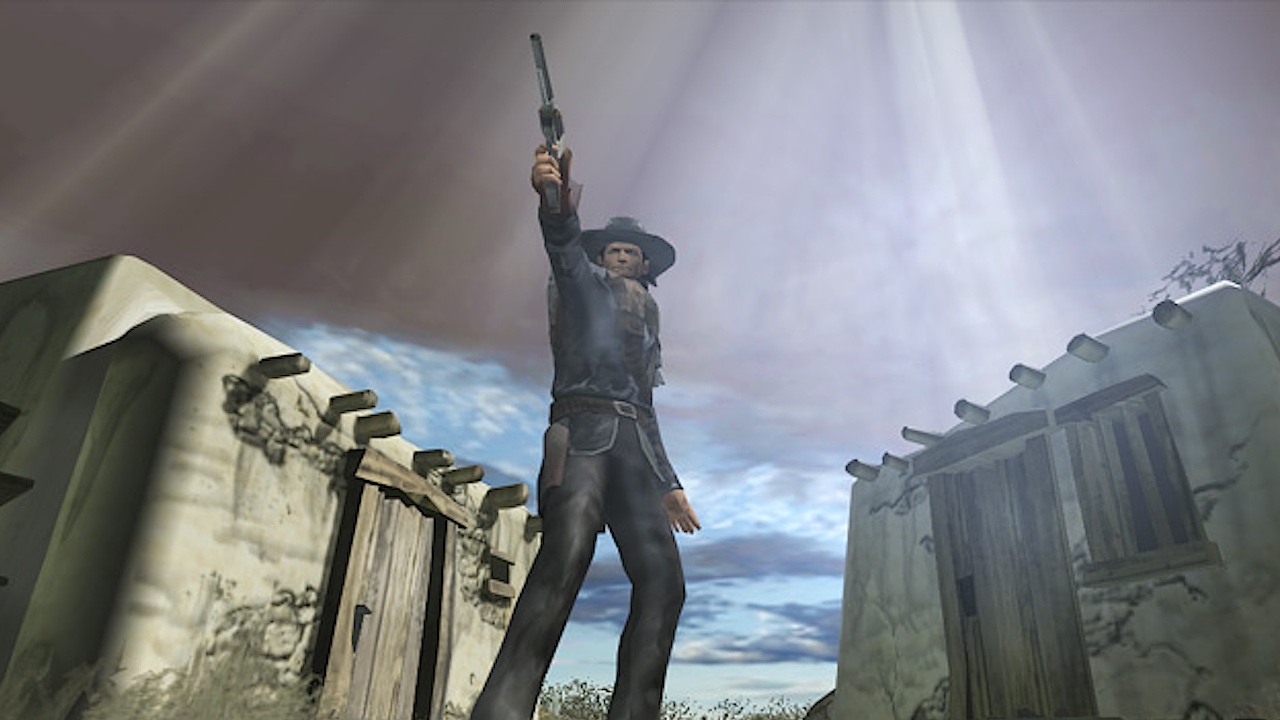
Red Dead Revolver
Like Metal Gear Solid, Red Dead Revolver's title may not be the most inventive name around, (they're really just big lists of things found in those games), but what both lack in creativity they more than make up for in terms of catchiness. Red refers to the original game's hero,Red Harlow, while Dead alludes to his unique 'Deadeye' ability - the power to pick out and execute enemies in slow motion. Revolver, meanwhile, makes reference to the handguns that play an important role in the game's narrative, including the custom shooter Red receives from his murdered father.
As for the game's sequel, the Redemption part is pretty self explanatory, with Rockstar likely treating the rest of the title as some sort of vague evocation of the old west, i.e. red deserts, sunburn and plenty of death.
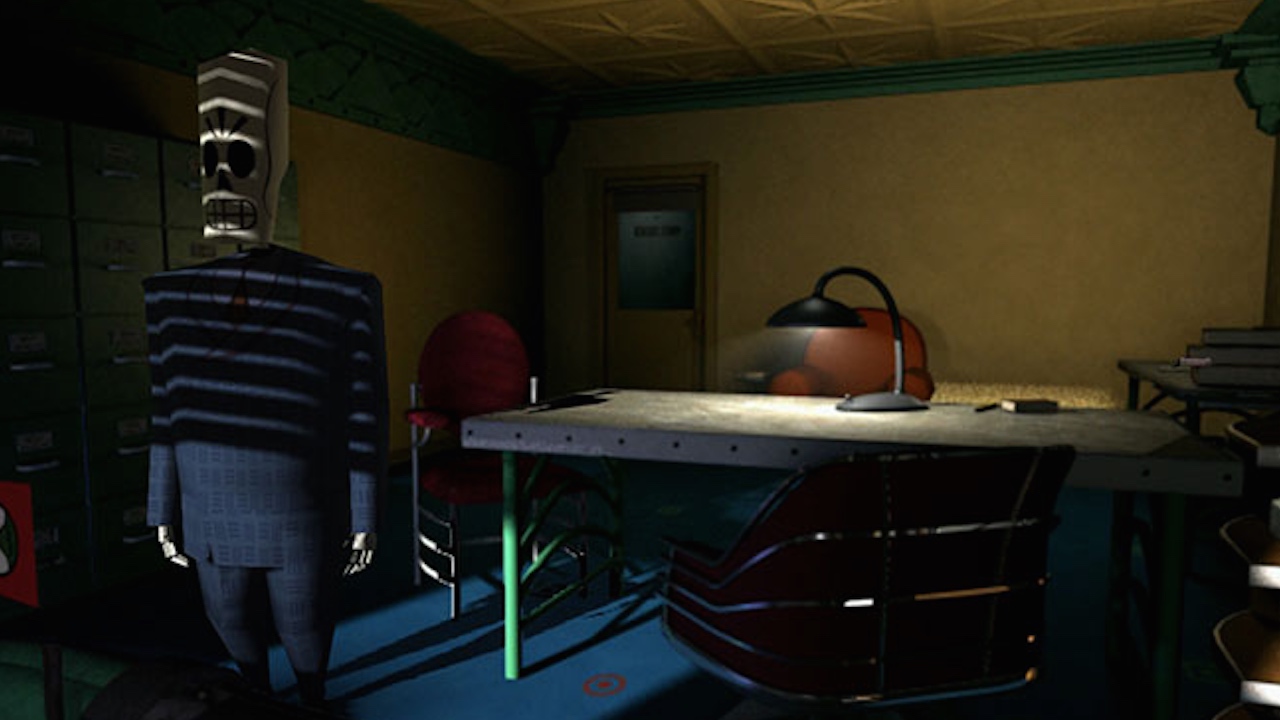
Grim Fandango
Like the Legend of Zelda, many folks erroneously assume that Grim Fandango's title must refer to the game's skull faced protagonist. It certainly wouldn't be the most normal name around, though considering the game's eclectic setting - a noir-ish take on the Mexican afterlife - perhaps not too strange.
The title, however, is taken from the game's second chapter, in which the deceitful Olivia Ofrenda recites the words during a poetry performance. The poem in question likens the game's sad state of limbo to a morbid dance, or a 'grim fandango'. Now you know unless you knew before, in which case, well done you.

Grand Theft Auto
The legal definition of a 'Grand Theft' varies from state to state, but typically relates to any act of larceny involving an amount larger than 250-500 dollars. Anyone caught stealing less than this amount is usually charged with a milder 'misdemeanour' offence. However, incidents involving an automobile (that's the 'Auto' bit in the title, in case you hadnt noticed) don't tend to adhere to these rules, meaning that any motor vehicle stolen - even a barely functioning scrap car - is still charged as a grand theft (auto).
California police report GTAs via the call sign '487A', or alternatively - '10851' (503 in L.A.). British police, by contrast refer to such incidents as 'a bloody frightful inconvenience', while our Australian cousins choose the term 'roley-stoley wheelie steelie'.

A game of names
Feeling enlightened? Good. Feeling surprised? Splendid. Feeling a sharp series of pains in your chest? Go to the doctor. To suggest some more interesting definitions, head on down to comments section below.
Looking for more title-related malarkey? Then check out 12 movies with the same titles as video games (that are nothing like those video games) and 20 gross misuses of the word 'extreme' in video game titles.



